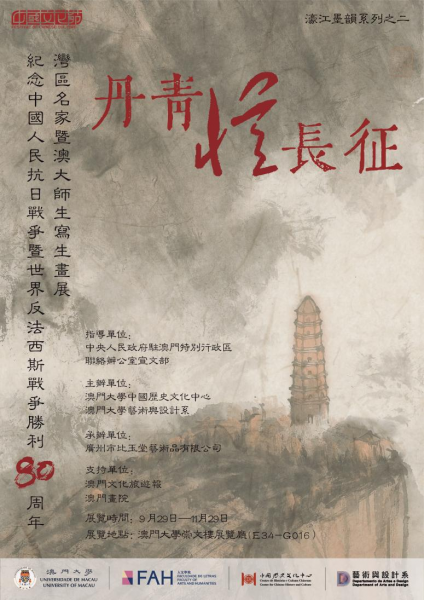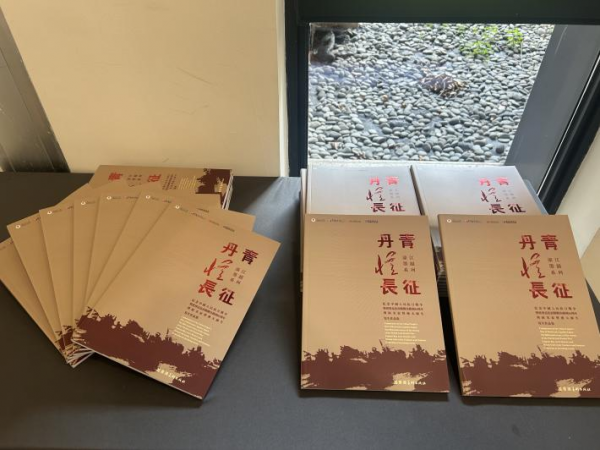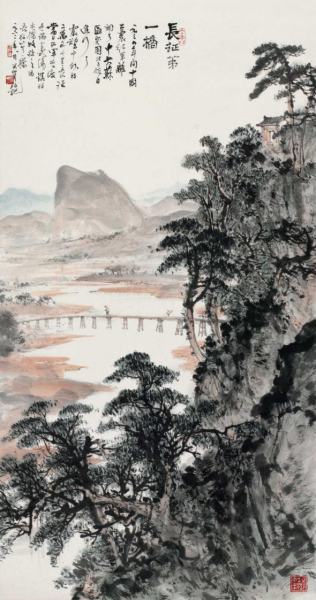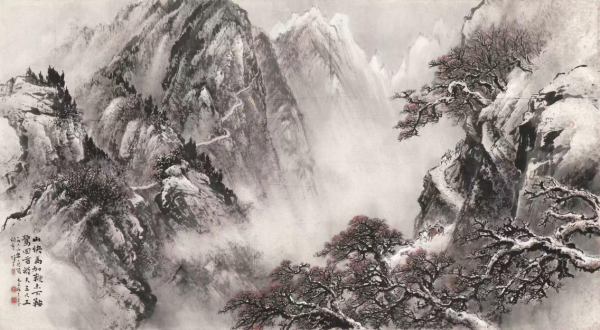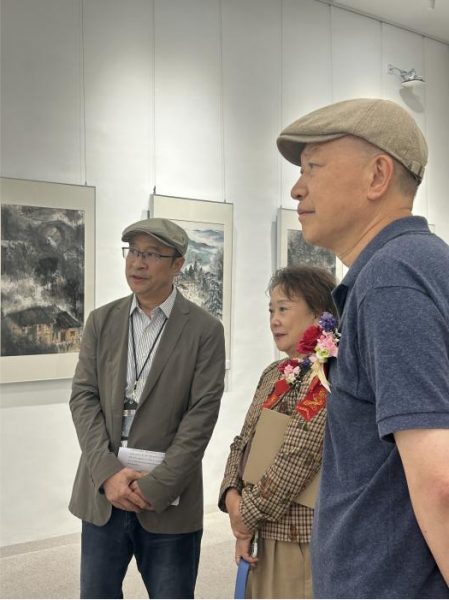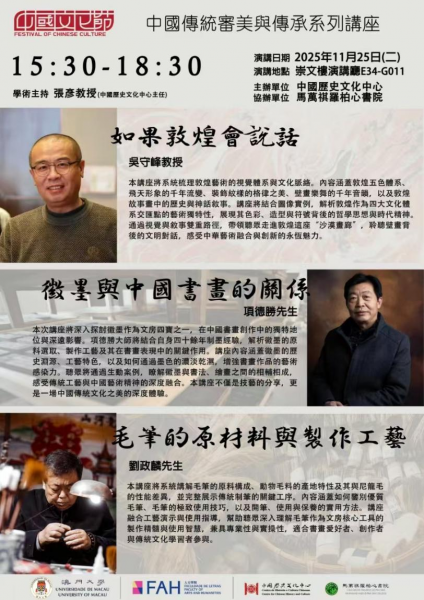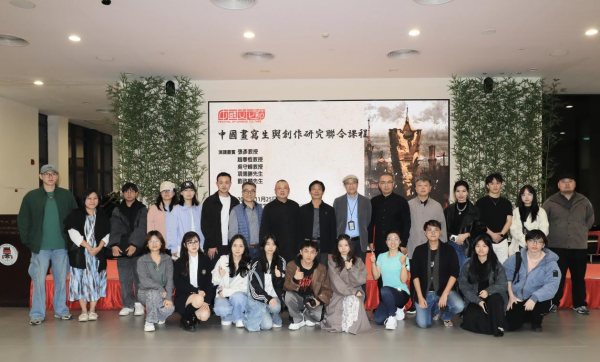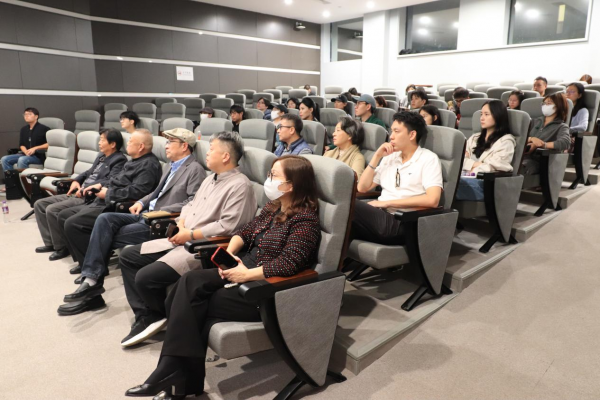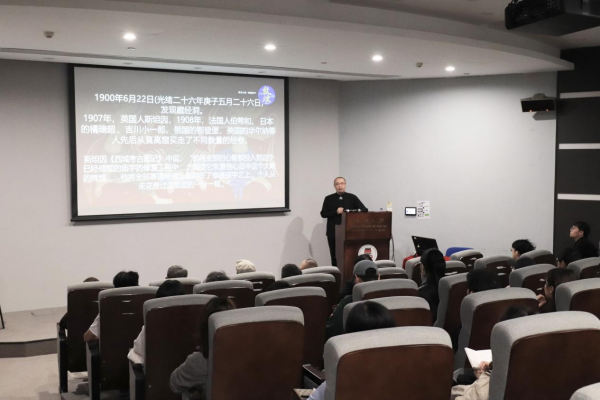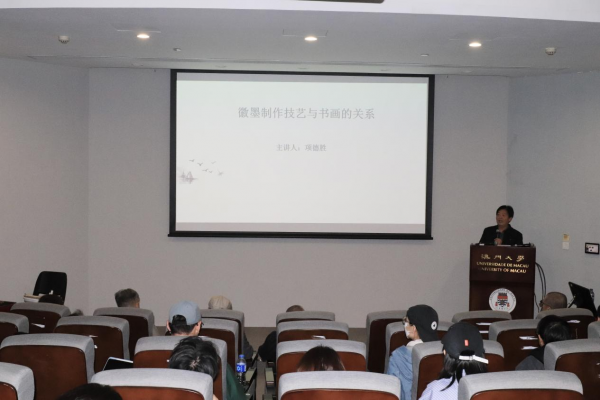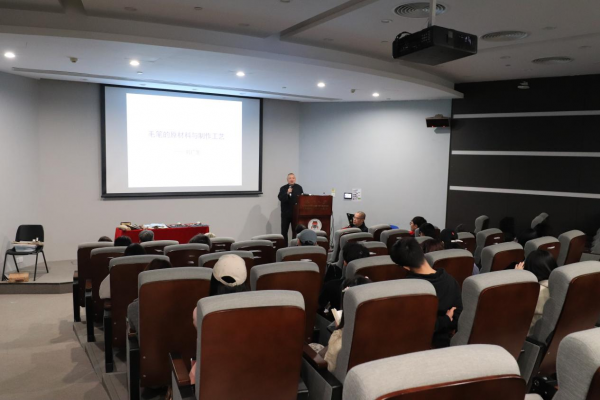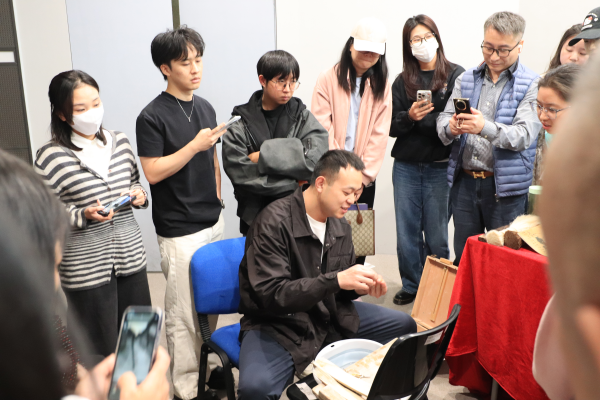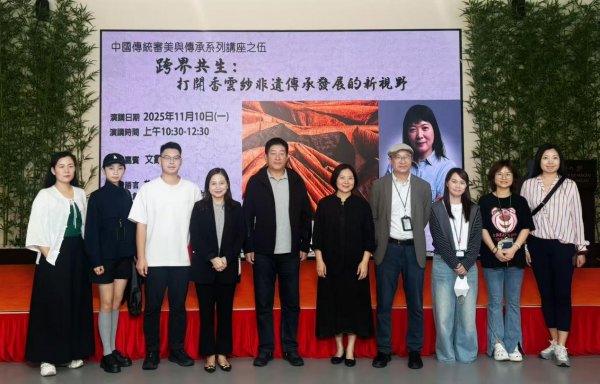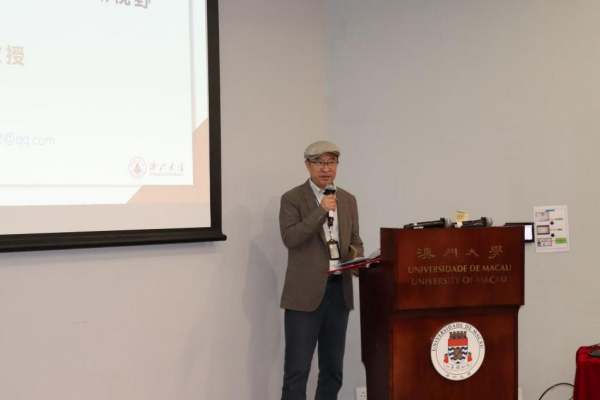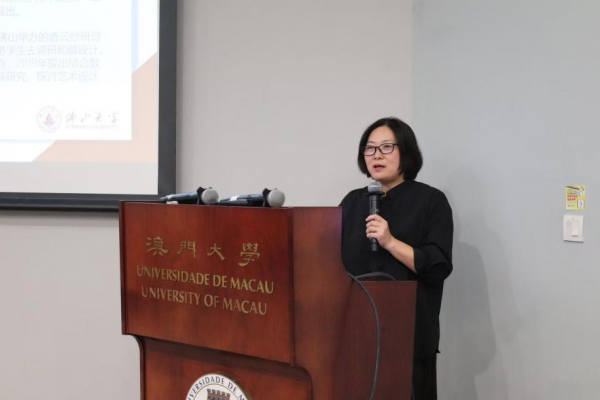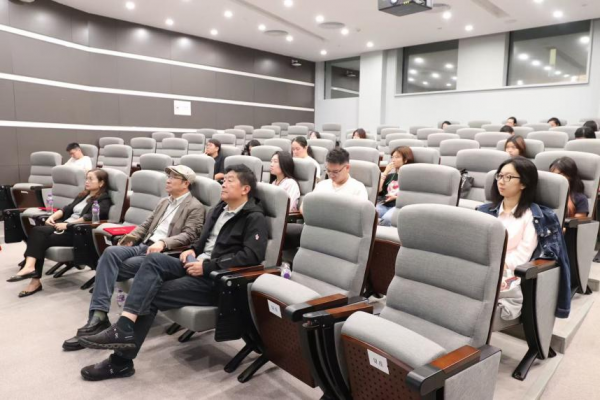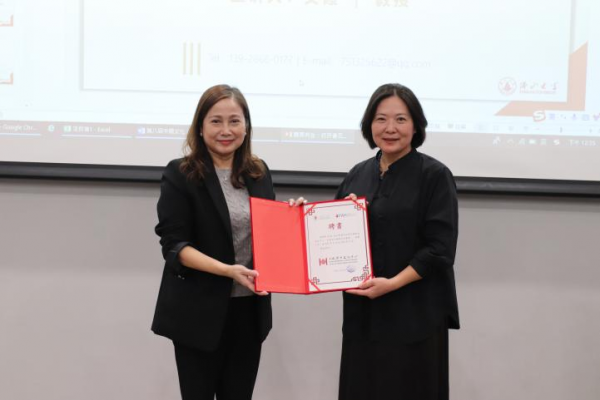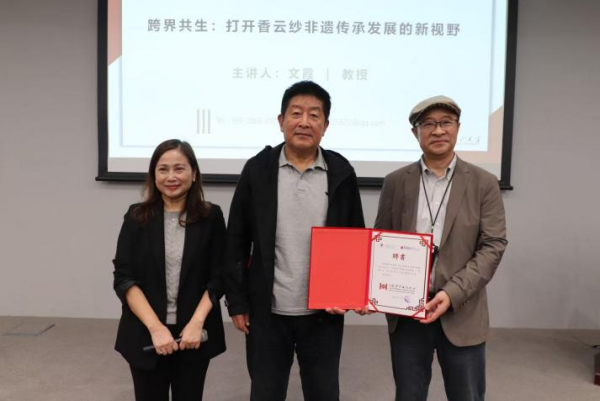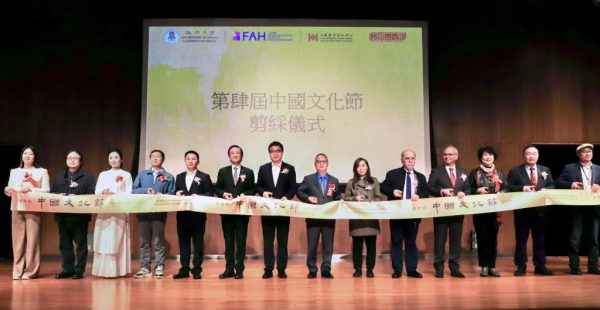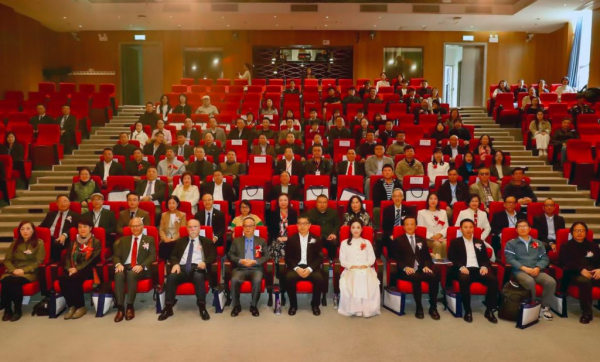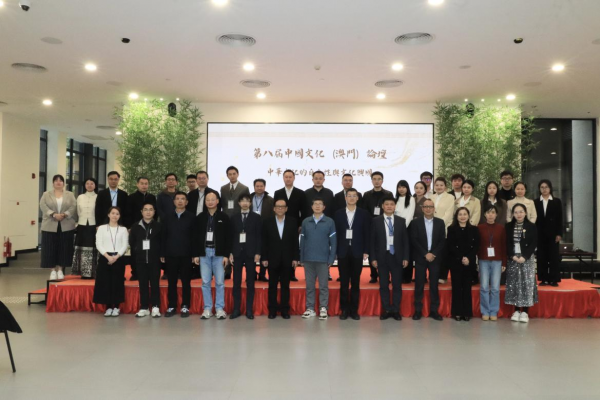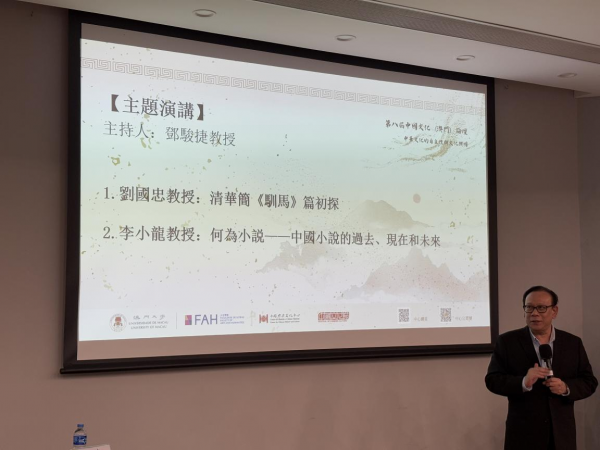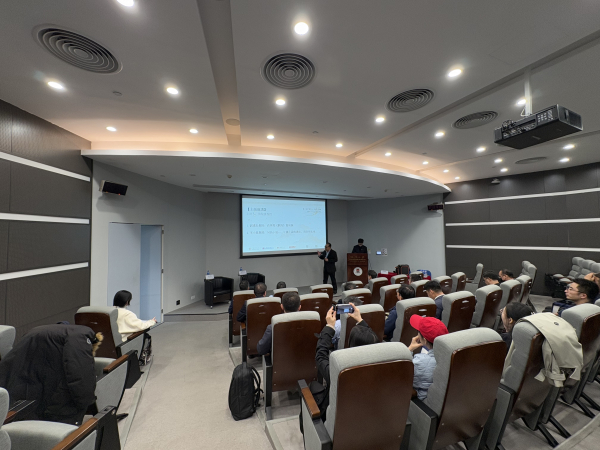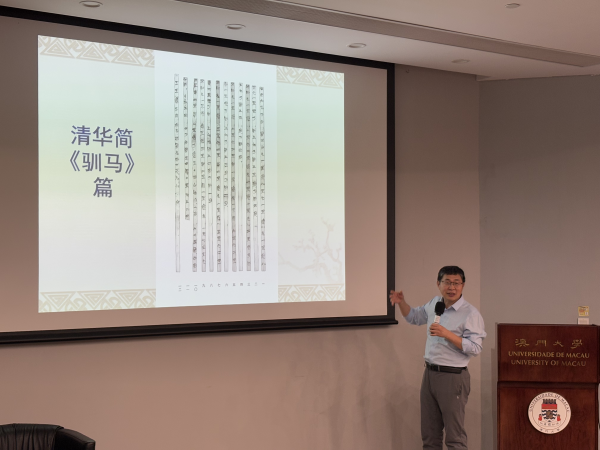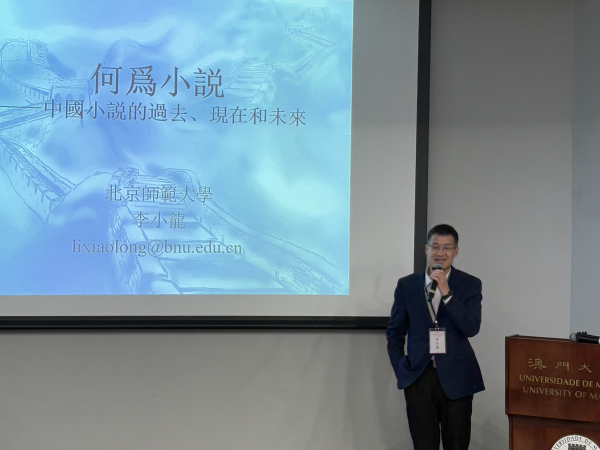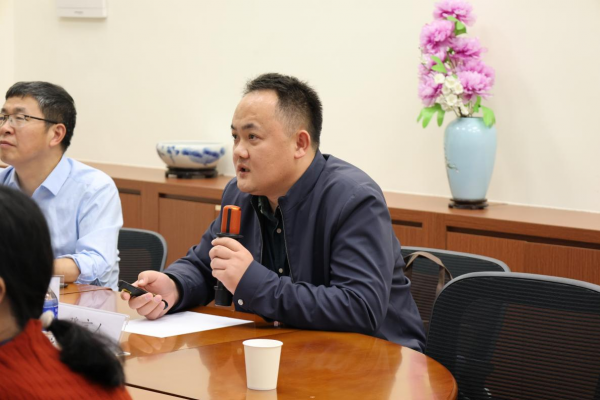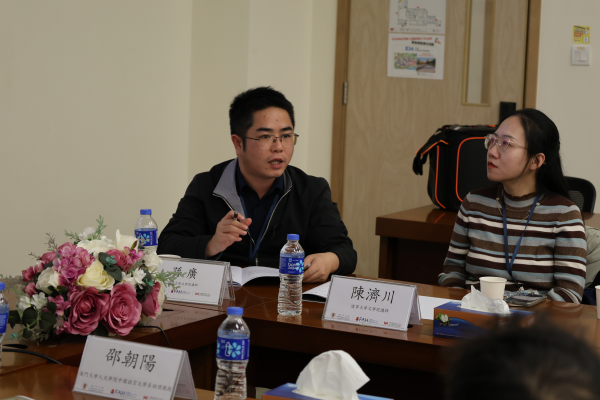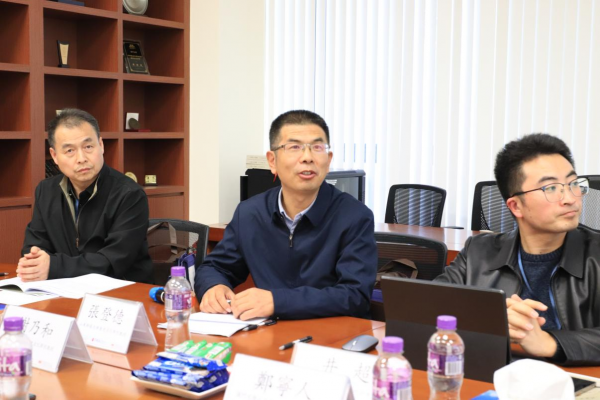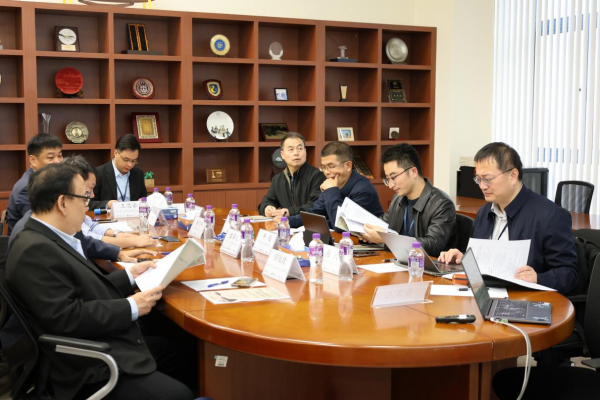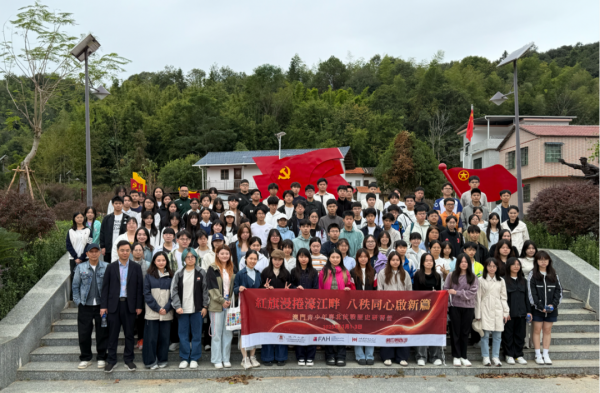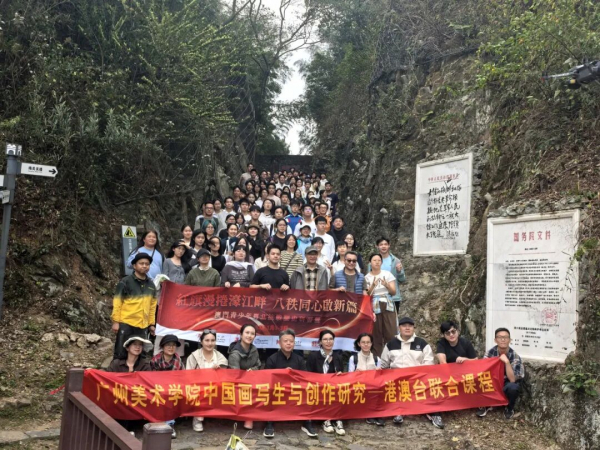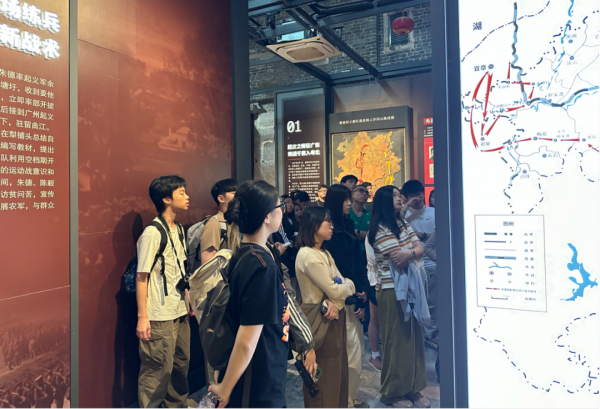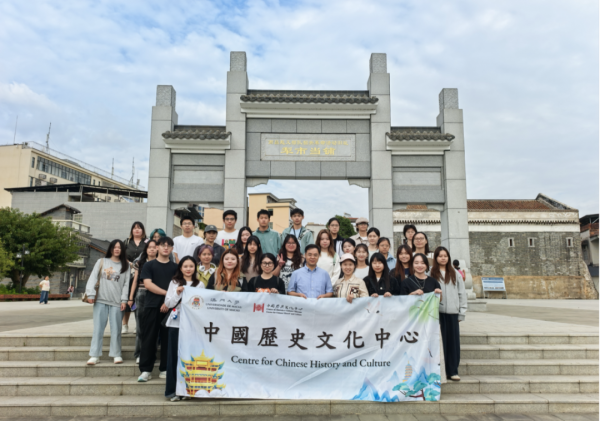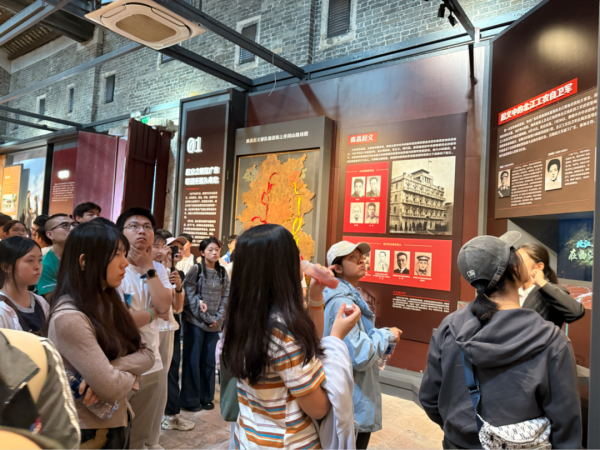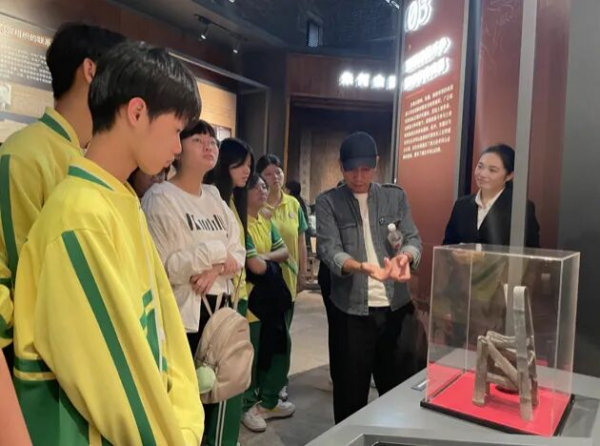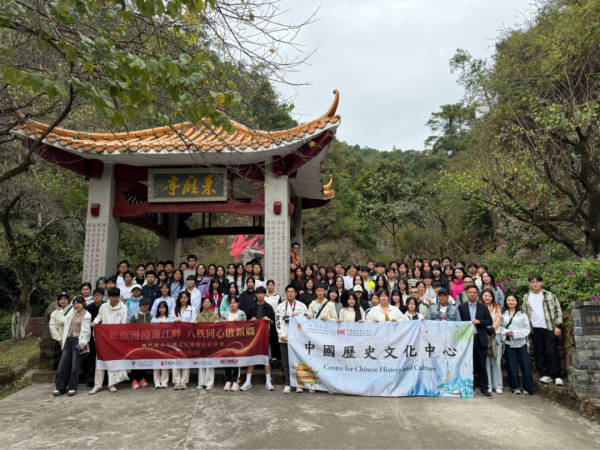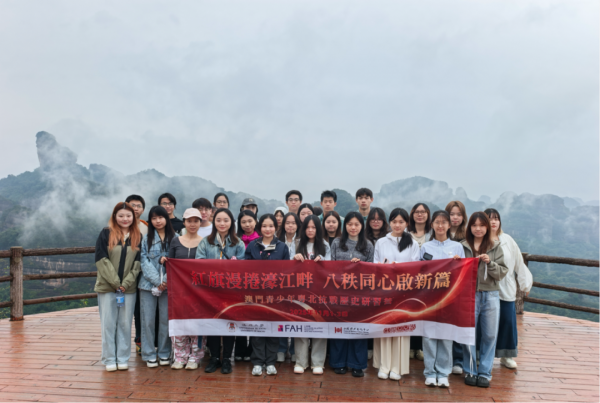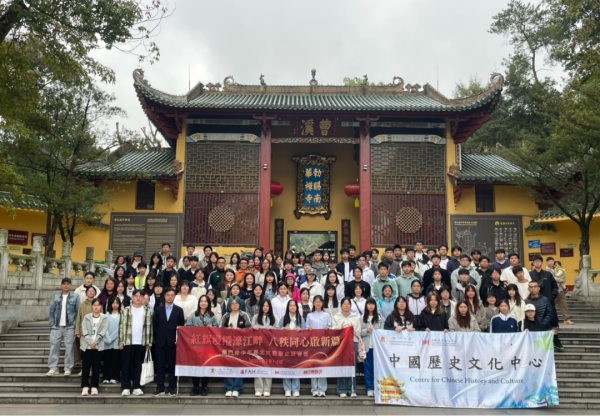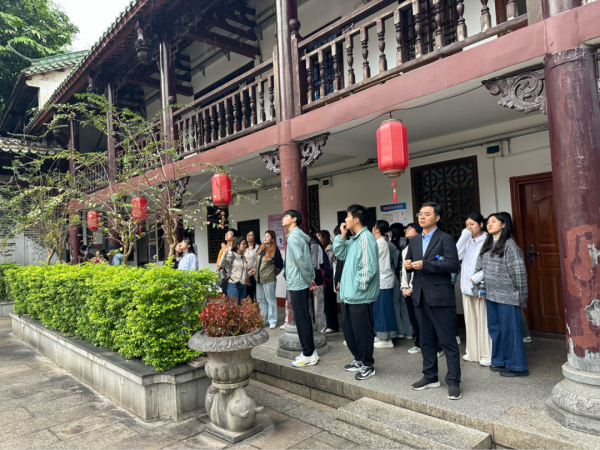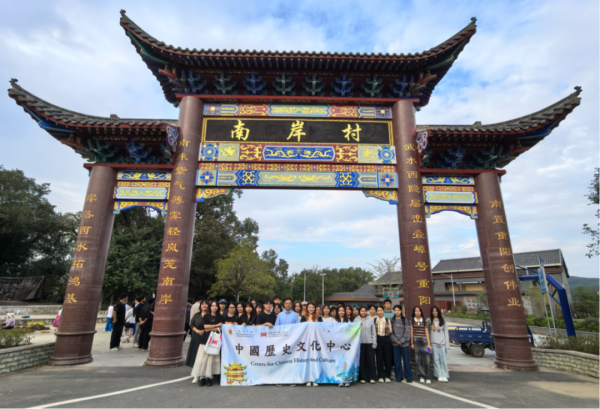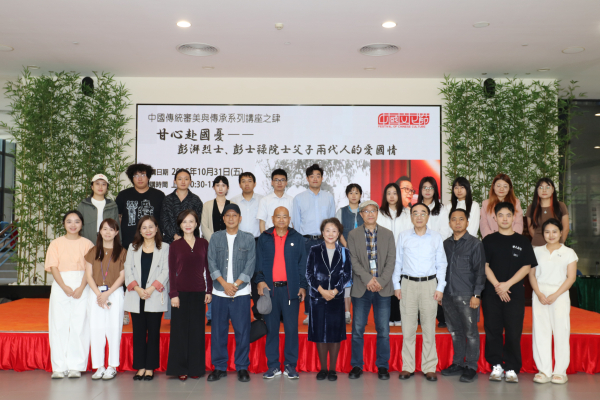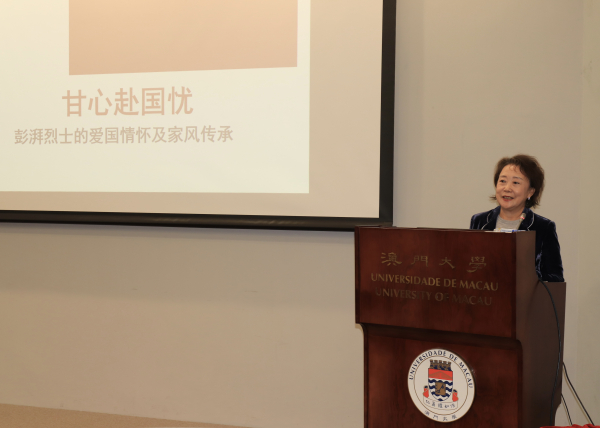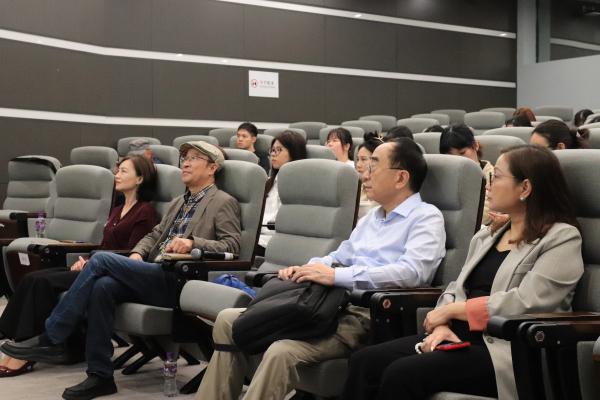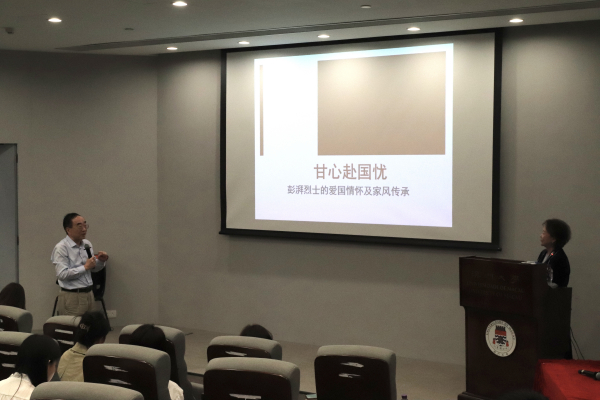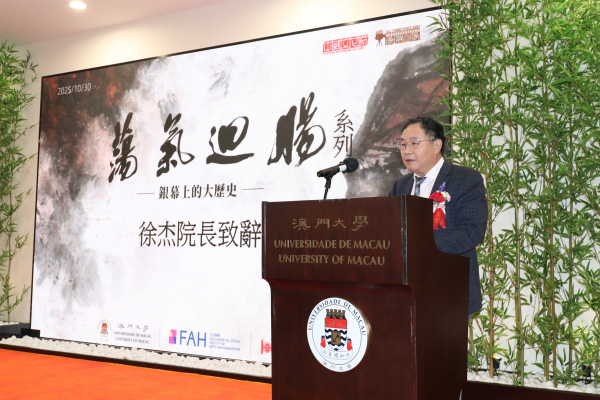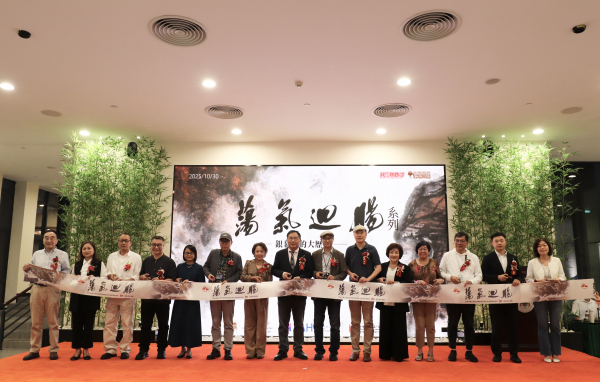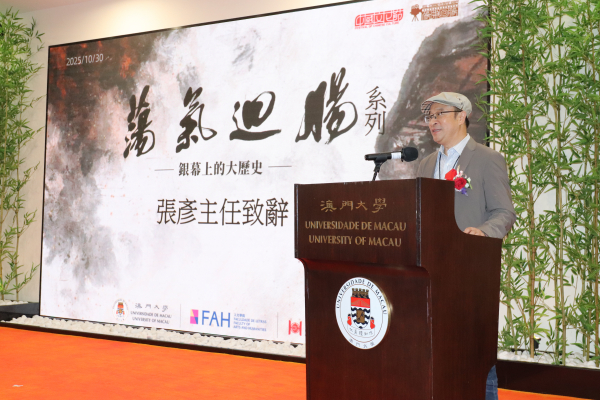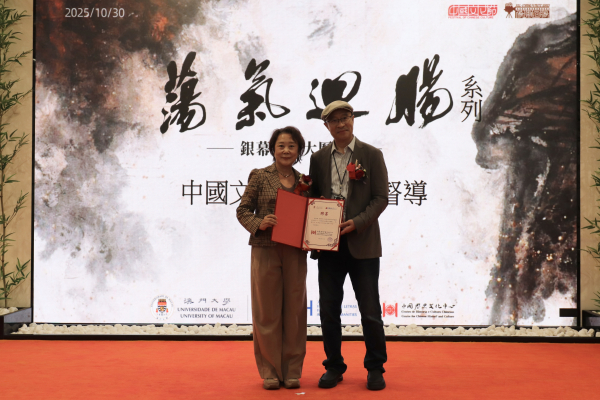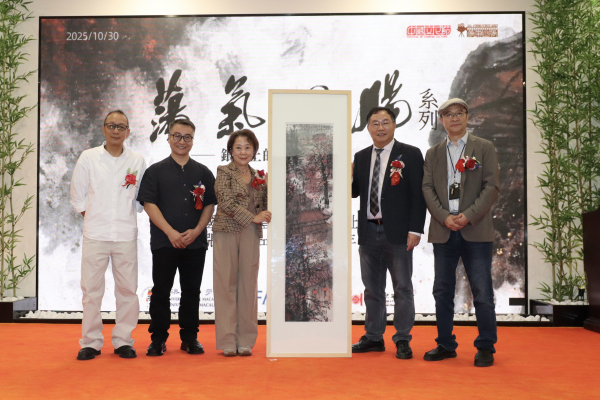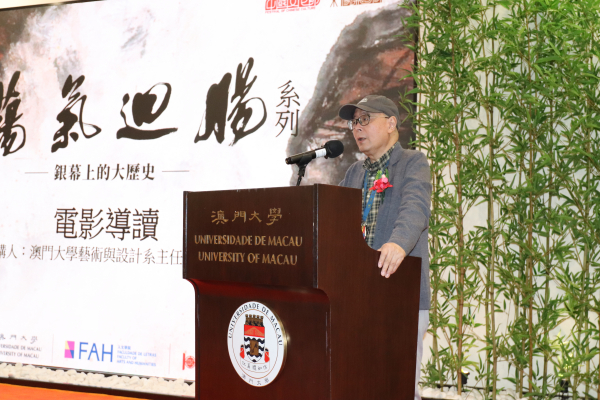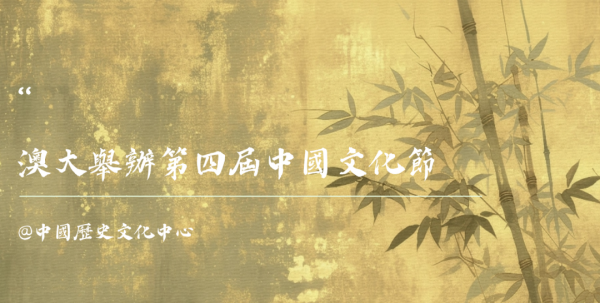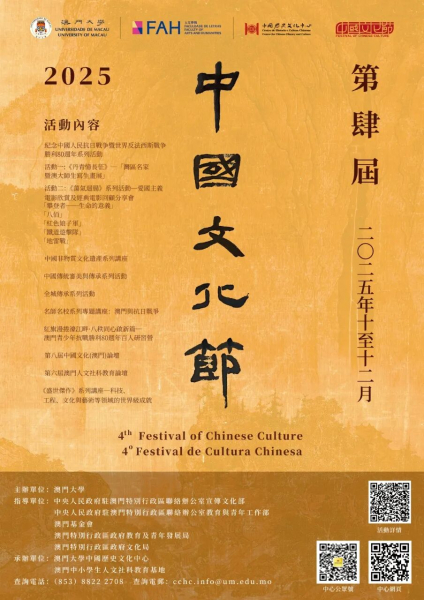On 21 October 2025, a delegation from the Centre for Chinese History and Culture of the University of Macau visited Guangzhou for cultural exchange. The delegation successively visited the Guangzhou Museum of Art and the Guangdong Province International Cultural Exchange Center, engaging in in-depth discussions on museum–university collaboration and regional artistic interaction within the Guangdong–Hong Kong–Macao Greater Bay Area. The visit opened new pathways for promoting cultural integration and educational cooperation between the two regions.
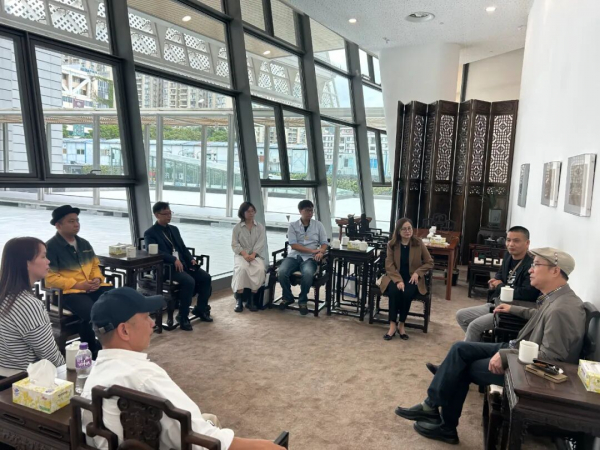
Exchange with the Guangzhou Museum of Art: Exploring New Models of Museum–University Collaboration
On the morning of the visit, the delegation first called on the Guangzhou Museum of Art and held a meeting with its Director, Mr. Luo Qi, and other representatives. Prof. Zhang Yan, Director of the CCHC of the UM, held discussions with Director Mr. Luo Qi on the sustainable development of cooperation between the Centre and the museum. Both sides conducted in-depth exchanges on new mechanisms for museum–university collaboration, focusing on practical issues such as resource sharing and joint project development.
The Guangzhou Museum of Art is the only art institution in China that holds both the titles of “National Key Art Museum” and “National First-Class Museum.” Its collection comprises more than 33,000 works (sets), including over 4,000 precious cultural relics. Director Mr. Luo Qi proposed strengthening artistic collaboration within the Guangdong–Hong Kong–Macao Greater Bay Area and suggested jointly curating thematic exhibitions on the Lingnan School of Painting in the future, with a view to tracing its historical development in Macao. Prof. Zhang Yan, in turn, proposed introducing selected collections from the Guangzhou Museum of Art to exhibitions at the UM, thereby promoting the dissemination and research of Lingnan art in Macao. The museum also expressed its willingness to open visiting channels for teachers and students from primary and secondary schools in Macao and to plan themed art experience activities to enhance young people’s understanding of traditional culture.
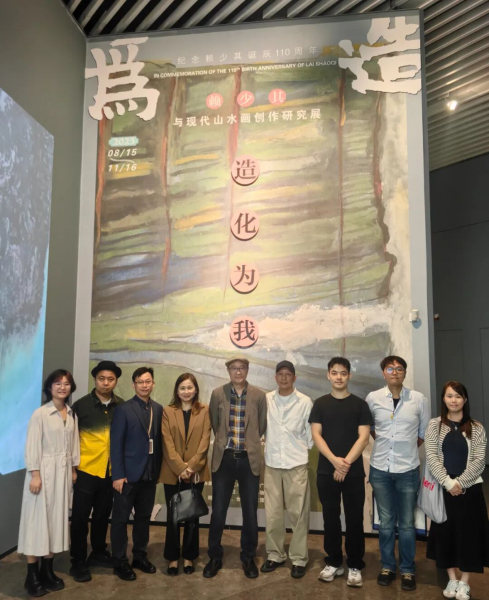
Exhibition Visit
Following the symposium, the delegation visited the exhibition “In Commemoration of the 110th Anniversary of Lai Shaoqi’s Birth: Creation as My Own—Lai Shaoqi and the Study of Modern Landscape Painting,” gaining a deeper appreciation of the profound heritage of traditional Chinese culture and its contemporary innovations.
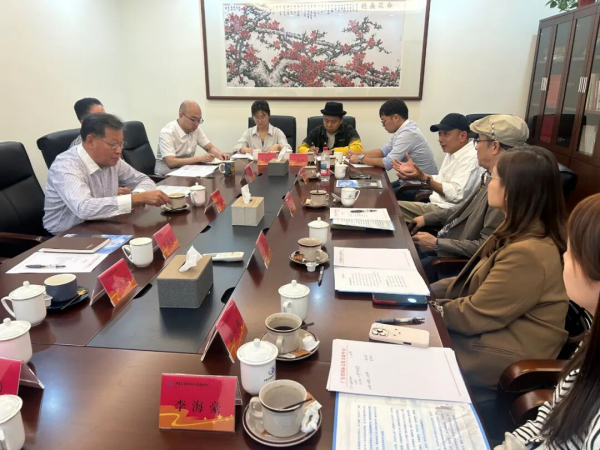
Meeting with the Guangdong Province International Cultural Exchange Center: Advancing a Mechanism for Regular Cooperation
In the afternoon, the delegation proceeded to Guangdong Province International Cultural Exchange Center for further discussions. The meeting focused on four major themes: cross-regional cultural exchange, resource sharing, multi-party cooperation, and the establishment of regular exchange mechanisms. Participants unanimously agreed that full advantage should be taken of the geographical proximity and shared cultural roots of Guangdong and Macao to build a long-term cooperation framework with art as the bond and education as the vehicle.
At the meeting, Dr. Cheang Neng Ian, Deputy Director of the CCHC, reported to Mr. Lin Xiong, Chairman of the Guangdong Province International Cultural Exchange Center, on CCHC’s progress and achievements in promoting cultural education in Macao over the past several years, as well as the challenges encountered and efforts made along the way.
Chairman Mr. Lin Xiong highly commended the accomplishments of CCHC and pledged strong support for its future initiatives, with a view to jointly advancing cultural exchange between Guangdong and Macao. Mr. Luo Zhichao, Secretary-General of the Center, introduced that its board members include representatives from various sectors of the cultural community across Guangdong, Hong Kong, and Macao, and noted that the Center could actively mobilize board resources in the future to promote diverse forms of exchange, including cooperation on intangible cultural heritage projects.
Prof. Zhang Yan further proposed organizing joint academic forums, touring exhibitions, and artistic creation programs to promote talent cultivation and resource sharing, while also exploring the establishment of digital collaboration platforms and exchange bases to enhance regional cultural communication capacity. Ms. Kuan Sio In, Principal Admin Officer of the Centren Officerosed organizing joint academic forums, touring exhibitions, and artistic creation programs to promote talent cultivation and resource sharing, while also explo–Macao cultural collaborationosed organizing joint academic forums, touring exhibitions, and artistic creation programs to promote talent cultivo.
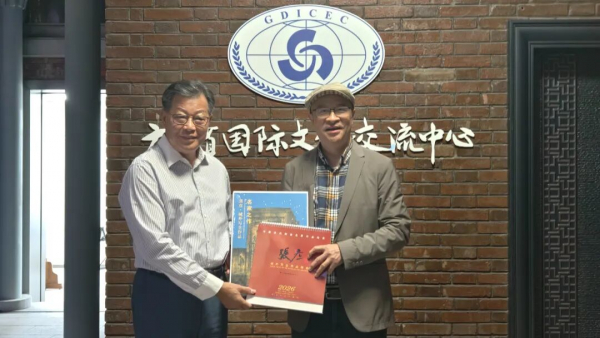
Presentation of Commemorative Gifts
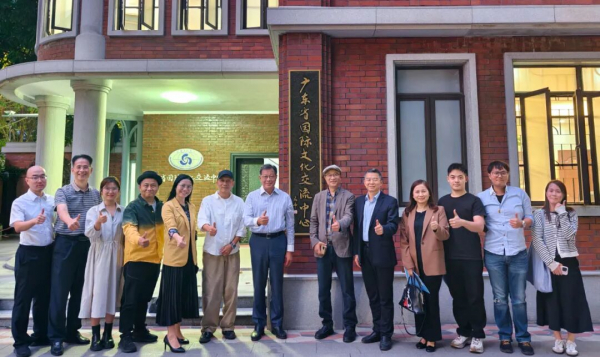
Deepening Cooperation and Jointly Drawing a New Blueprint for Bay Area Culture
This visit further consolidated the foundation of cooperation between the CCHC of the UM and Guangdong in the field of cultural education, while injecting new momentum into the building of a humanistic community in the Guangdong–Hong Kong–Macao Greater Bay Area. Both sides expressed their commitment to continued and deepened interaction, jointly promoting the inheritance and innovation of outstanding Lingnan traditional culture within the Bay Area and contributing to the international dissemination of Chinese culture.
Participants in the symposium included Mr. Yu Kun’ai, Deputy Secretary-General of the Guangdong Province International Cultural Exchange Center; Mr. Lin Shuguang, Deputy Secretary-General; Ms. Zhang Jian from the Secretariat; Administrative staff of the CCHC of the UMaca and Chinese Culture Promotion Ambassadors.
